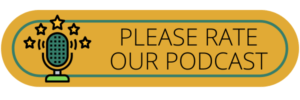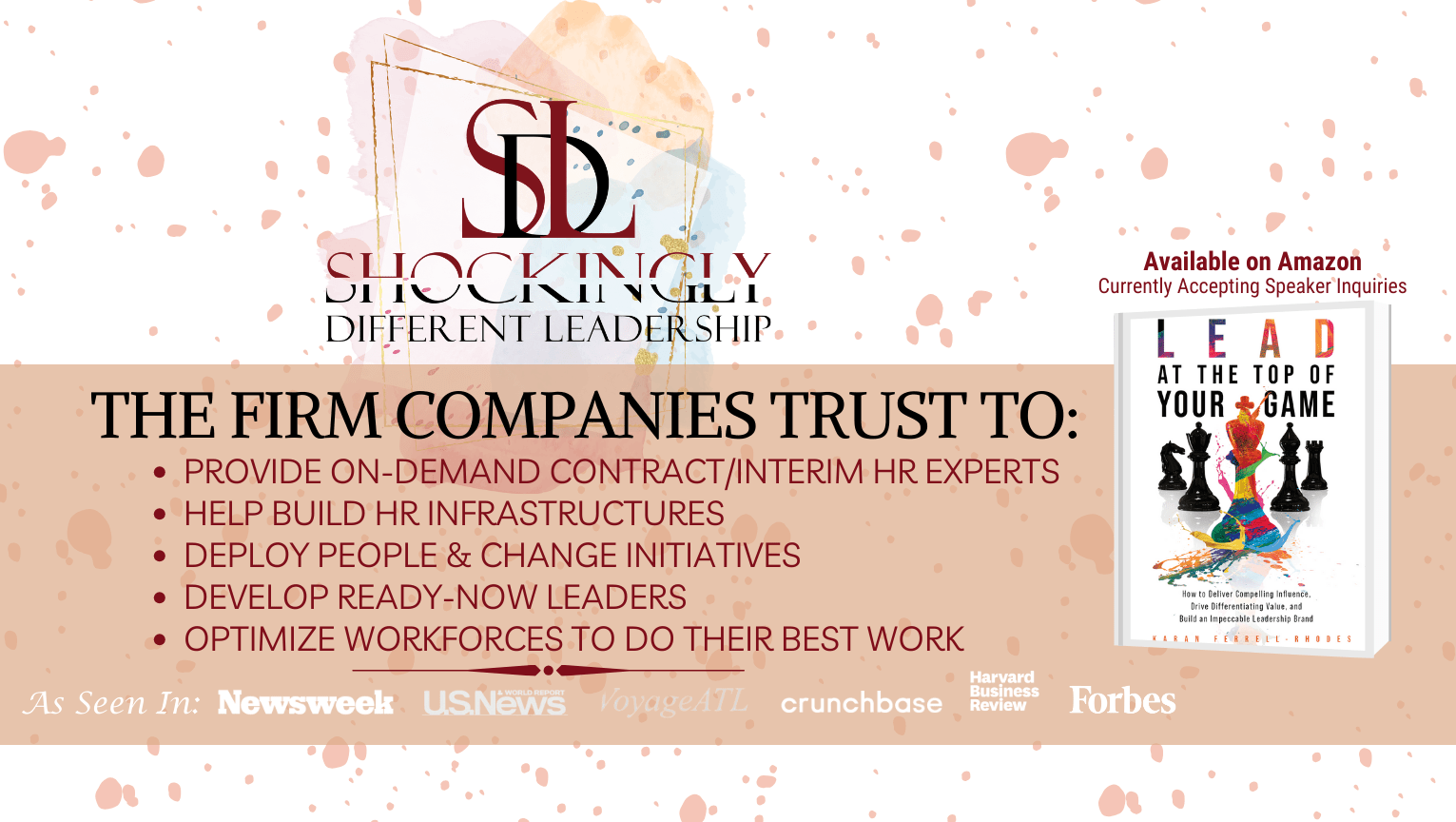IN THIS EPISODE, KARAN FERRELL-RHODES INTERVIEWS STEPHEN PASKOFF.
Stephen discusses the importance of creating civil, respectful workplaces. He shares real-life examples from high-stakes environments where fear of speaking up led to serious consequences.
Stephen emphasizes the need for open communication, addressing implicit bias, and fostering a culture that encourages listening. He outlines key behaviors for workplace success and introduces the “Just Talk” model.
Stephen Paskoff is the founder, president, and CEO of Employment Learning Innovations, Inc. (ELI). ELI helps organizations, including the federal government, implement sustainable behavior change through virtual programs, huddles, and quick talks to reinforce positive workplace practices.
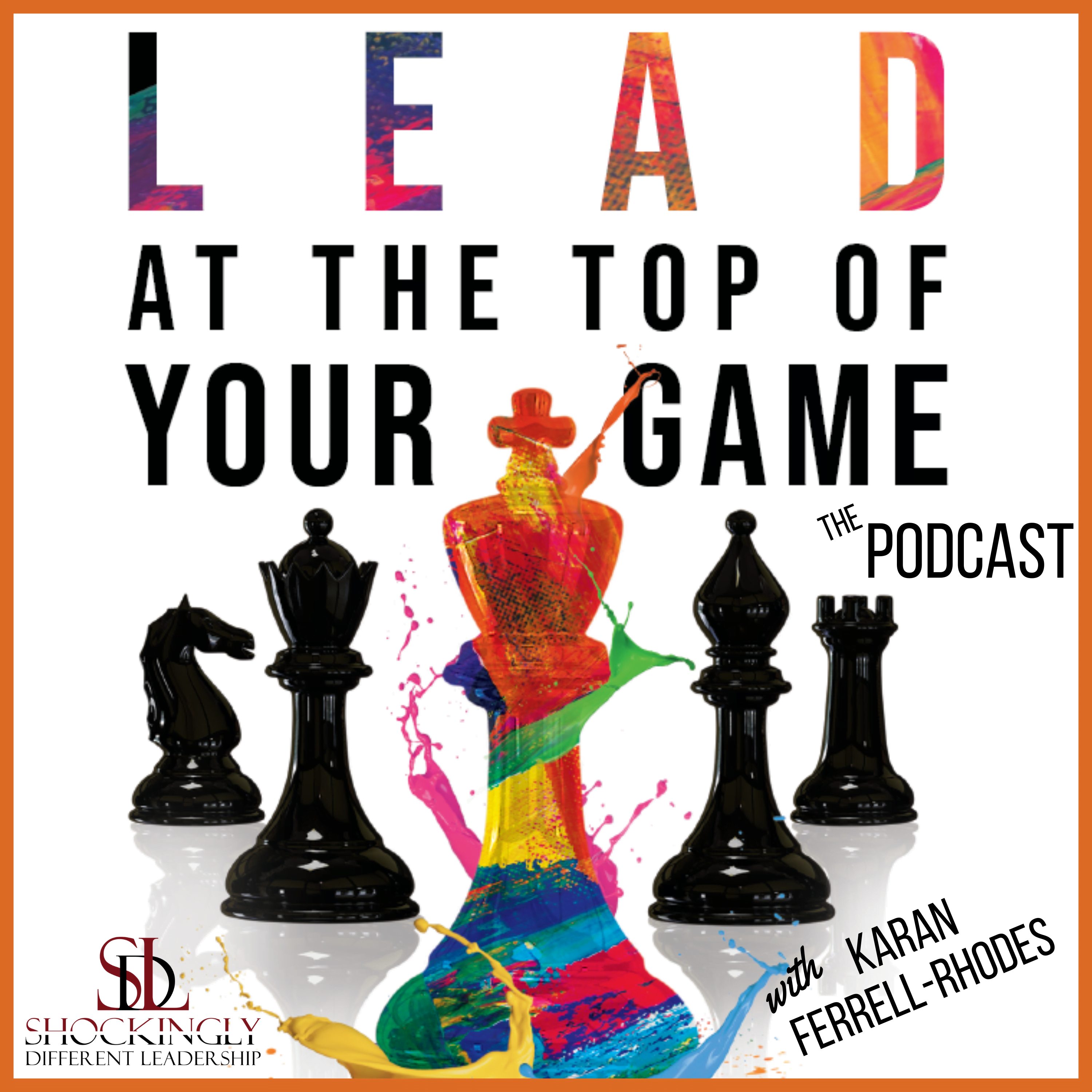
Posted by
SDL Media Team
Rather view our video podcast?

WHAT TO LISTEN FOR:
- Why is speaking up in the workplace important?
- What workplace issues are caused by implicit bias and microaggressions?
- What are the key behaviors for workplace success?
- What is the “Just Talk” model about?
- How can organizations maintain civility during challenging times?
- What methods does ELI use to reinforce positive workplace behaviors?
“Guard your words and actions.”
FEATURED TIMESTAMPS:
[02:48] Personal Background
[03:52] Stephen’s Career Journey
[08:06] Challenges of Speaking Up in the Workplace
[12:55] Real-Life Examples of Workplace Challenges
[14:32] Signature Segment: Stephen’s entry into the LATTOYG Playbook: Key Behaviors for Workplace Success
[19:59] Maintaining Civil Workplaces in Challenging Times
[24:10] ELI’s Offerings and Approach
[28:34] Signature Segment: Stephen’s LATTOYG Tactic of Choice: Leading with Courageous Agility

ABOUT STEPHEN PASKOFF
Stephen M. Paskoff, Esq. is the founder, president, and CEO of Employment Learning Innovations, Inc. (ELI). ELI provides learning and consultative workplace services that help clients translate their values into daily behaviors and related practices. ELI works with public and private organizations to build lawful, civil workplace cultures that improve results and reduce compliance risks.
Additionally, Mr. Paskoff was a founder and former Co-Chair of the ABA’s Compliance Training and Communication Subcommittee. Before establishing ELI, Mr. Paskoff was an investigator and trial attorney with the Equal Employment Opportunity Commission and a partner in a management law firm.
LINKS FOR STEPHEN:
- Website: eliinc.com
- LinkedIn: linkedin.com/in/eliinc/
PEOPLE AND RESOURCES MENTIONED:
- CIVILITY Rules! A New Business Approach to Boosting Results and Cutting Risks: amazon.com/CIVILITY-Business-Approach-Boosting-Results
ADDITIONAL RESOURCES FOR YOU:


Episode Sponsor
SDL is the go-to firm companies trust when needing to:
- supplement their in-house HR teams with contract or interim HR experts
- implement leadership development programs that demonstrate an immediate ROI and impact on the business

Episode 126 | Critical Behaviors That Foster a Civil Workplace with Stephen Paskoff
Stephen Paskoff 00:00
Speaking up and listening and recognizing that when you have an issue, it should be a conversation going back and forth, rather typically than a lecture or a monolog. Is critical. And problem is, is at many organizations, it’s not explained as something that can prevent catastrophes, personal and organizational, and it’s an efficient way of moving teams forward to getting the best risk.
Voiceover 00:04
Welcome to the lead at the top of your game podcast where we equipped you to more effectively lead your seat at any employer, business or industry in which you choose to play. Each week, we help you sharpen your leadership acumen by cracking open the playbooks of dynamic leaders who are doing big things in their professional endeavors. And now your host leadership tactics and organizational development expert Karan Farrell Rhodes,
Karan Rhodes 00:36
Hello, my superstars. This is Karen, and welcome to another episode of the lead at the top of your game podcast, I am so pleased to have a dear friend on today’s show. He is someone that I’ve looked up to for a number of years, and we were able to steal a little time off his calendar to present him to you today. And he’s definitely someone every one of you listeners out there definitely need to know we’re happy to have Mr. Stephen M Paskoff Esquire. He is the founder and president and CEO of Employment Learning Innovations Incorporated. And to those who know this company is fondly called Eli, and their firm works with public and private organizations to build lawful, civil workplace cultures, which improve results and reduce compliance risk. Now I did not do him debt justice. We’re going to talk about this in depth in just a second. But as I said, I’ve known Stephen’s work for years. I truly applaud him for evangelizing the business case, for a fusing civility and compliance in all workplace cultures in order to make sure that we all have very effective workforces and workplaces in place. So welcome to the podcast, Stephen,
Stephen Paskoff 01:51
Thank you, Karan, I’m honored to be here.
Karan Rhodes 01:53
Oh, we’re so honored to have you, and I, as you know, I can’t wait to dig in and give the listeners just a taste of your experience and expertise and stories. You’re a fantastic storyteller, but before we do so, we always love to just to learn a little bit more about our guests. So just for as much as you feel comfortable, will you give us a sneak peek into your life outside of work?
Stephen Paskoff 02:14
I have two children, a son, and I have a daughter. My son lives in North Carolina. My daughter lives in Atlanta, near us. She’s married, has two wonderful daughters, Brooke and Leah, and a great little dog, daffodil, and we all are very close. And my wife is a writer. Also, she’s written two books, and she’s a great person and a fellow entrepreneur. She’s from Atlanta. I’m from Pennsylvania, and somehow we’ve made it all work.
Karan Rhodes 02:46
It sounds like it That sounds fantastic. Well, at least all your family’s in the southeast, what we call the southeast, anyway, and it’s within shouting distance of each other. So I’m sure you all have very lively gatherings when you’re able to get together, right?
Stephen Paskoff 02:59
Yes.
Karan Rhodes 03:01
Fantastic. All right. Well, thank you so much for sharing Stephen, and let’s dive right deep into our conversation. First of all, I would love for you to share kind of a high level points of your career and what led you to found Eli.
Stephen Paskoff 03:18
I’m going to start this way back and do it as fast as I can.
Karan Rhodes 03:21
Ok.
Stephen Paskoff 03:22
I’ve always been interested in civil rights. I read the autobiography of Malcolm X in 1967 and when I went to Hamilton College in upstate New York, couldn’t believe it, but Alex Haley was the visiting professor. I pleaded my way into the class. He was writing what became roots at the time. He was the most powerful influence on me, and kept me influenced in civil rights. And his story was fantastic. I went to law school in Pittsburgh, and I got a job as an investigator for the EEOC. What I wanted to do that translated into a job, into as a lawyer for the EEOC in Atlanta, where I investigated, did some litigation of pattern and practice cases, joined a law firm where I not only defended clients and advised them, but started doing training, and I found out that I just loved the training because it involved interactions. I had done speech, I had done debate, I had done theater, and I have to be candid. I’d also had a great job, which really prepared me as a tour guide at a brewery in upstate New York. And I love public speaking, so I had started doing the training. Found a different way to do it, and one night, I woke up in the middle of the night and had the idea of starting the business. Told my wife, also an entrepreneur. She said, Okay, let’s go. The worst that’ll happen is we’ll end up living with my parents, she said, which was a motivation keep going
Karan Rhodes 04:52
Within itself. Oh, fantastic. And can you share a little bit more about what Eli does? Because I know I didn’t do it justice. Because you do, you do so much advising, consulting and training.
Stephen Paskoff 05:04
Yes, of all, initially I developed the idea because I’d wanted to work with hospitals briefly been pre med, as my wife has said, I can’t help resist it. Saying this, she told me, I’ve saved more lives by not going medical medical school than most doctors do in their whole professional lives, but I wanted to work with hospitals, and through a close friend who’s went to Harvard Medical School and his wife who went to there for business, for government school, I got a job. But client, Brigham and Women’s Hospital, which is a teaching affiliate at Harvard, started teaching people there, and that expanded to teaching in healthcare, a program to avoid legal risks and behavioral risks, and that became the beginning evolution of what’s become our civil treatment platform. It’s gone from me doing the training to other people doing the training, to doing it online, doing it virtually, doing it by asynchronously online learning. And we’ve trained several million people and certified about 15,000 instructors, and the passion has extended to just limiting legal risk, to figuring out ways to avoid behaviors that are not just illegal, but can have a huge poisoning effect on coworker relationships, teamwork, results and risk and doing things the right way can have just the opposite, positive, better outcomes, lower risk that benefit everyone.
Karan Rhodes 06:40
Absolutely, and I’ve been so fortunate to be familiar with the earlier versions of your curriculum. And you know, one of the things that I really loved, how you all championed, is helping leaders and members and organizations or employees, even themselves, to have the courage to have the challenging conversations and to speak up, and usually that’s sometimes a point of, I won’t say contention, and maybe that’s not the right phrase, but it’s something that people in the workforce have to face, even though they are hesitant or nervous about it, and so I’m curious, and as you said, taught Millions of people probably how this has evolved over time at the curriculum, are people still struggling with having those tough conversations, or are they getting a little bit more comfortable around it?
Stephen Paskoff 07:32
That’s a great question. First off, speaking up and listening and recognizing that when you have an issue, it should be a conversation going back and forth, rather typically than a lecture or a monolog. Is critical. And problem is, is it many organizations? It’s not explained as something that can prevent catastrophes, personal and organizational, and it’s an efficient way of moving teams forward to getting the best risk. I saw it in several instances. Karan and I’ve talked about it and written about it. One was working with a nuclear power organization where people were afraid to speak up about potential safety risks. Would you want to live near that power company or anywhere in the same state? Not at all? Yeah, would I? And second, the story that really changed me was in 2005 20 years ago, working with a hospital that I never reveal, and it’s not in this general region of the southeast Atlanta where we are, but there were a group of cardiac surgeons who were extraordinarily talented, and two of them, though, were rude and abusive, dismissive, unwelcoming during procedures. And I was asked to do some work for them. I interviewed people, and it still sticks with me. Two nurses sat together, and of the two surgeons I was there to talk about, I told them, tell me, what’s going on? Is it a problem? And one person, a nurse, said, yeah, it’s a huge problem for me, because when I work with them, they’ll scream, they’ll yell, they’ll insult me, they’ll ignore me. I feel like I’m living the worst day of my life. Over and over, she’s sitting next to a colleague, what’s it like for you? I asked her, and she said, it’s not a problem why I come from a military family, she said. And I said, I will enlist, and you can send me to combat in Iraq or Afghanistan, because I’m not working with those two surgeons, so I’m okay. They don’t assign me. And then I talked to two anesthesiologists, and they were the same race in this case, Caucasian, same sex, male in this case, and what’s it like? I asked them, there are times when we don’t speak up in surgery on critical cardiac care. Procedures, because that’s what we do, because we hope that the surgeon will see the problem soon enough, and we don’t have to speak up, because it’s very disruptive if that surgeon is not in the mood to hear what we have to say and we have to say it. Now the question I’ve asked everybody you’ve heard probably heard me say it. Anybody here you anybody want to be in that or as a patient or someone you care about, I doubt, and when I looked at it, I realized it wasn’t technically illegal, but it surely was in violation of their values that were posted all over the place, and that changed my life, realizing how critical it is you’ve got to have people speaking up, and it’s got to be done that it comes from the top and encouraged and explained over, and it’s got to be a cultural standard of interacting.
Karan Rhodes 10:50
It definitely does. I so agree with you on that, and I will actually give add on to your commentary with real life examples that probably all of our listeners have had, I will even say that although there’s a lot of unconscious bias, as you know, and microaggressions in organizations, it doesn’t always have to the root of it is not always like race related or gender related or what have you. Sometimes it’s the way people are incentivized for performing at work. And two companies that come top of mind for me is the whole Theranos scandal, with Elizabeth Holmes, with the if you remember, with the prick of a blood drop on your finger, you know they claim they could do all these, these deep tests, which didn’t come out, but the culture there was one of intimidation and silence and to keep people quiet about it being a fraud. And because of that, people were encouraged to stand up, speak up. And you know, people’s lives were at risk by these inaccurate tests that they were kind of touting. And then you think about Boeing, but you know, they were incentivized to raise profits and not look at safety as much. I mean, keep people quiet. Who are your whistleblowers? And you know, people lost their lives because of that. So to your point, I think there are many root causes of why people are hesitant or afraid to speak up, but people’s lives literally can be at risk by not doing so. Don’t you agree?
Stephen Paskoff 12:21
Absolutely. And those are examples. I read the book that you’re talking about. I don’t remember the name of it now. Great book. And I believe she’s still in jail.
Karan Rhodes 12:29
She is, yeah, yeah.
Stephen Paskoff 12:31
And I’ve used the same thing with Boeing. What do you think of Boeing? It used to be superb. Oh my god, I’m not sure I want to get on the plane. That’s a tragedy. You mentioned implicit bias. Let me throw you out a way of looking at that that’s different than most people look at it.
Karan Rhodes 12:48
Ok.
Stephen Paskoff 12:48
Part of it people say is, we want people to feel comfortable speaking up about implicit or unconscious bias, right, right? There’s a way of looking at it says, Okay, we have unconscious bias. Karan, I think some of it is not unconscious. It’s just not unproven, but let’s just say that’s all unconscious. Well, if it’s really unconscious, that means the person who’s saying it, they don’t know what the problem is, and the person who’s receiving it surely does. So why don’t we flip it around and say, We want you, if somebody is experiencing that, because you don’t realize you’re doing it, to feel free to tell you. But if you keep doing it, it’s no longer that, but it’s all the more reason with that that we should say, please speak up, because you that person may not be aware it, and that’s your responsibility to listen when they do absolutely,
Karan Rhodes 13:46
Absolutely. And Stephen, what do you think are some of like, the key behaviors that any individual in a workforce must exhibit? And why is that?
Stephen Paskoff 13:58
I’ve got three. You know…
Karan Rhodes 14:00
Okay.
Stephen Paskoff 14:02
Karan, we’re not going to make people perfect. We are never gonna…
Karan Rhodes 14:07
Aren’t we? We can’t do it?
Stephen Paskoff 14:07
Nope. Maybe you can. I’ve tried. I’ll turn it over to you
Karan Rhodes 14:10
I’d be a trillionaire if I could
Stephen Paskoff 14:13
Let me know. But here’s what I think we can do. We can say there are certain things that you never say, do, write, text, post, email, voicemail about another person. And those are the characteristics that nobody wants to hear used about their particular group. That is something that you do not do the workplace is not the limitation, because whatever I write or say or post can be posted and last for many lifetimes, right?
Karan Rhodes 14:52
Yes.
Stephen Paskoff 14:53
Guard your words and actions, is what we have said. Second though is the second thing you want, is. Is for people to know. We want people to speak to each other about issues they’re having in terms of their relationships. And part of it is we want people to have a two way conversation and listen. It’s not a one word monolog, listen. That’s what we call our just talk model. The third thing is, is that we want people to know that if they can’t resolve the issue, they will get help, but then, when they get help, people will act to find out the problem in HR or legal or in terms of other resources available, find out what’s going on, address it sooner than that later. So you want to prevent the worst, guard your words and actions, because that is something that will linger and affect interactions, even if there’s not a legal claim or a grievance, it’s just human how we are. And work out stuff quickly and move forward. If we could do that, it would eliminate so many different issues, prevent problems sooner rather than later, and it should be presented as a business imperative. It’s not a social issue. It’s not a social justice issue. And in fact, when you’re trying to convince others say this is just about business, because that’s the strong, strong, powerful argument.
Karan Rhodes 16:24
I love that, and I’m curious, Steven. I don’t want to put you on the spot if there’s not a great answer that you know. But do you ever have recommendations for individuals on the kind of the Get Help section if they don’t trust their internal resources, like their boss or HR. Are there other areas that you point them to to maybe seek assistance? Is it mentors and friends, or is it somewhere else that they can get help it?
Stephen Paskoff 16:51
I’ll give you the though I haven’t practiced for a long time, I’ll give you the legal answer, which is, it depends. It depends on the issue. Because some of them, you’d say, we’ve their federal law enforcement agencies that should be in charge of dealing with these issues. Or you may be in a workplace that has a collective bargaining agreement with outside sources. You might have friends in the area who you could say, Can I run this by you and see what you think? There are lots of sources you can ask. AI, how should I handle something like this? Be anonymous, and you’ll be surprised probably at what you’ll hear, but you ultimately have got to be able to, ideally be in an organization where people want to hear and it should be presented, not only as a personal issue, but this is affecting our team and how we get work done, because it does, it does absolutely by the examples you used.
Karan Rhodes 17:42
Thank you for that, because I know there’s a lot of folks out there that do struggle and are wary their internal resources until they kind of get their thoughts together and their strategies together. And so because we have, you know, wide variety of listeners on this podcast, I wanted them to also know, don’t limit yourself to just internal resources. You know there are other external resources that you can tap into as well, and you had a great list right there.
Stephen Paskoff 18:08
it and it’s a huge issue.
Karan Rhodes 18:11
Yeah.
Stephen Paskoff 18:11
It’s not an easy issue. It should be. And if you take a look at EEOC records as one example, you’ll see that retaliation is continuing to rise, and that’s because organizations don’t say and they should. If we’ve got a problem, the best thing that’ll happen if somebody has let us know before it becomes the kind of catastrophe of any sort that you mentioned in your two examples.
Karan Rhodes 18:37
Yeah, I would be remiss, Stephen, if I didn’t ask you the tough question. And what I consider the tough question that a lot of folks are struggling with is, you know, how do we maintain civil workforces and workplaces in very challenging geopolitical times that we find ourselves in right now? And I’m just, I’m curious on what you’re seeing is in trends, especially because of the rollbacks of some terminologies, like dei and other things, how is your firm kind of thinking about continuing the business case for this very important work,
Stephen Paskoff 19:18
it’s interesting. I’ve written about this Karan, for many years.
Karan Rhodes 19:22
You have. You absolutely have.
Stephen Paskoff 19:25
I’ve written about this for many years. And the thing that I think that organizations are not doing that they should do, what they should be doing, is starting off by getting to read people, to realize that when you join an organization, you have a commonality with everyone there. You are governed by the same mission, vision and values, and the values should be the way we include how we treat one another as citizens of the organization. I think. People should recognize from the beginning. Karan, you and I work together. That brings us in common, because there are few people who work in this particular organization compared to the whole world. We come to the same place live or virtually, and that brings us together. We can learn about other differences, but we start off by saying we’ve got something in common here that is absolutely critical. The issues that are out there, they are, as you mentioned, they are political, they are social in terms of different group issues and tensions. They are economic. Right now, they’re returned to work, and we have to at least recognize some commonalities that we can build from. As an example, I’ll just make this very brief. I’ve asked lots of people, and I’ll answer it myself. How’s that? Tell me if I’m wrong. If you and I go to a conference and I see your name, you see me, my name. We’re outside of Atlanta. I don’t know you. You don’t know me. We sit down for the conference. I know what I would ask you, I’d see your name. I’d say, Well, hey, Karan, I see you. Where are you from? And you’d say Atlanta, right? And I’d say Atlanta. And all of a sudden, we’re in Atlanta. What do you do? Oh, really, I know so and so. Do you know so and so? I know so and so very quickly we built something. We intuitively search for those commonalities, and we have one that’s special in our workplaces.
Karan Rhodes 21:30
Absolutely. And that’s going to be the basis for building additional bridges. Is that That’s right, yes, I love that. If there was one thing that you would want my listeners to take away from our conversation today, or just on this topic in general, it doesn’t even have to be from our conversation. What is the one thing you want? One nugget or two nuggets, if you have that you’d love for them to take home and really think about and resonate with?
Stephen Paskoff 22:00
I think that probably what I mentioned is the whole thing of guard, what you say and do, not certain things, everyone will know them, because he said, if that was said to me, I’d never trust them again. That just you can’t communicate that and the other try to work things out. I think that is absolutely critical. And frame it. If you’re raising issues to discuss with it is frame it as look. I want to talk about that this is a business issue, and frame it also assume good intent. As I said. You can sometimes when you talk to somebody, be geared up to say, I’ve got to talk to you because what you said offended me. That’s fine. It’s possible you might have misheard so you’re speaking up not only for what they said, but what you might have misinterpreted. Absolutely the first thing, because it’s hard to explain that away, but that’s the second thing that is absolutely critical.
Karan Rhodes 23:01
Love that. So Stephen, you know the topic that you know that your firm, Eli focuses on, has been in existence for hundreds of years, and I anticipate it being an evergreen topic that will need to be trained, addressed and reinforced even in the future. So I’m would love your you to share with our listeners. You know what types of offerings Eli provides? I want to make sure we highlight that so that they can think about it and bring it back to their organizations if they’re not engaged with you all already,
Stephen Paskoff 23:36
Thank you. We’ve worked with major organizations, and some of them beverage industry in Atlanta, I’ll leave that alone. We’ve worked with the federal government, other organizations, and the whole thing that’s so critical is they’ve come to recognize that this is a business issue, and that has been something that’s really been powerful. One other thing that helps. And I’ll just ask people to think about this. We are all imperfect, and what you said is absolutely right about these habits, their cultural DNA, they have been developed, and you’re not going to be able to turn them out in just a single great class. It’s got to be a process. And the second thing is, is the process in the programs, in our civil treatment series, which is for leaders, senior leaders, C suite, employees and others, is to focus on the behaviors that I just mentioned to you. The underlying premises is that we cannot change what people think. We do have a right to insist how they behave, and when you look at this as safety, productivity and results, Steve or Karan, you can think what you want. But when the workplace, we’ve got to behave the. Example, going back to the surgeons, a surgeon might go into an OR and say, I don’t I’m a great surgeon. I just don’t want to wear a mask. The answer is, I understand. You don’t want to wear it, but you have to wear it for safety. Same thing should be about behavior as well, and that’s the strongest way to approach this and get some buy in, because you’re saying you’re who you are, but this is what we’re trying to do.
Karan Rhodes 25:28
I love that, and you do have both in person programs, virtual programs and on demand programs. Am I correct in those modalities?
Stephen Paskoff 25:38
And…thank you for asking that, because it’s not just putting people in training. Training is critical, but it’s got to be reinforced back on the job by leaders and teammates. And part of what we do, we’re doing that’s evolved, is to look at what we’re trying to do is to have a behavioral impact involved with activating values and programs beyond training that get leaders and team members to not just know but to do with the influence of working with one another are part of what we do with what we call huddles and quick talks and things that take little time, but they reinforce what matters, because what matters motivates and what matters stick, and you got to keep it simple. That’s what we do.
Karan Rhodes 26:24
Absolutely You’re so right. And listeners, you know that the huddle idea and concept, I will personally vouch for that that works excellently. A lot of call centers and customer service centers do that extremely well because it reinforces what the behavior should be of all employees, even if it’s a quick five to 10 Minute huddle every morning, it reinforces the direction that workers should have for the entire day. And I’ve seen it personally work very, very well, so I can only imagine how you’re leveraging it with the curriculum, Stephen, but before we let you get out of here, see we had, we have to ask you our signature question that we always ask our guests and for my new listeners out there, my firm did research on high potential leaders and organizations. What did they do that was different than most, and there were seven big buckets of activities that they embraced. And we always ask our guests which of the seven, which are all equally as important, which of the seven really resonated with them? And Stephen was so kind to share that leading with courageous agility really resonated with him. And this means having the courage and the fortitude to to really take calculated risk and to stand up for what you believe in and still move forward, even if future is uncertain or unclear. So it’s all about taking baby steps for things that you think are right. So Steven, curious minds would love to know why did courageous agility really resonate with you?
Stephen Paskoff 28:01
Two things, I had to exercise it to start this business, and I’m so glad I did. Yeah, I had the idea for doing training a different way, not lecturing about the law, but doing it interactively, so the participants learn. And I work with a great law firm that I still utilize, and one of the partners who was ahead of me. I asked him and talked to him about it, and he said, Well, why would we want to do that? Nobody else is and I thought, well, I want to do it. And the other thing I thought about that really was critical to me is I thought the night I had the idea, which was shortly after, to do the business that comment. But I also thought, when I look ahead into the future, what do I want my past to be? And I wanted to make sure that the me of then, which was now, 39 years ago, did something that would carry me forward that way. And you’ve got to look at it that way too. Do you want to regret not doing something that you knew was right and that you believed it, and I chose not to, and I’m grateful to my earlier self that I did.
Karan Rhodes 29:07
Oh, we’re grateful for you. I know, I personally, you know, I’m a personal fan of the fantastic work you’re doing, and you’ve trained so many people to kind of carry on the legacy as well. So I think that’s absolutely fantastic. Now, see, we’re going to have, course, your detailed bio and other information and links in the show notes, but I always love to give the guests a little bit of air time to share where folks can find you if they want to learn more about you. And the company,
Stephen Paskoff 29:34
Probably the best place to go is www.Eliinc.com, and that is our website. I’ve written a book that you can find it on Amazon, and if any of your viewers are really interested, I’ll send them a complimentary copy. It’s called Civility Rules, and it’s about everything we’ve discussed today.
Karan Rhodes 29:55
Oh, fantastic. Well, thank you again, Stephen for the give. Depth of your time and insights listeners, I really encourage you to check him out, connect with him and the company on LinkedIn and follow them to see the great work that they are doing. Steven, we just love having you on the podcast today, and we didn’t have enough time to go into everything, so we might have to bring you back later on.
Stephen Paskoff 30:19
Great. Thank you very much for having me. It’s great to work with you
Karan Rhodes 30:24
Same here. And thank you to listeners for the gift of your time as well, because we know that there are literally millions of other podcasts you can be listening to, and we do not take your patronage lightly at all. All that we ask is that you please like and subscribe to the podcast on your favorite podcast platform of choice, and share our podcast with just one friend, because by doing so, we’ll all get better at leading at the top of our games. Thanks so much, and see you next week. And that’s our show for today. Thank you for listening to the lead at the top of your game podcast, where we help you lead your seat at any employer, business, or industry in which you choose to play. You can check out the show notes, additional episodes, and bonus resources, and also submit guest recommendations on our website at leadyourgamepodcast.com. You can follow me on Twitter, Facebook, Instagram, and LinkedIn by searching for the name Karan Rhodes with Karan being spelled K a r a n. And if you like the show, the greatest gift you can give would be to subscribe and leave a rating on your podcast platform of choice. This podcast has been a production of Shockingly Different Leadership, a global consultancy which helps organizations execute their people, talent development, and organizational effectiveness initiatives on an on-demand, project, or contract basis. Huge thanks to our production and editing team for a job well done. Goodbye for now.

Want to be a Podcast Guest?
Check out our guest qualifications and submit our brief form to be considered.
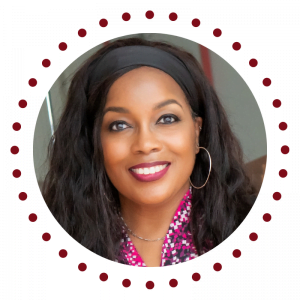
Want Karan to be Your Podcast Guest?
- Blended Workforces & the Gig Economy
- Critical Execution Tactics of High-performing Leaders
- Entrepreneurism & Leading Your Business
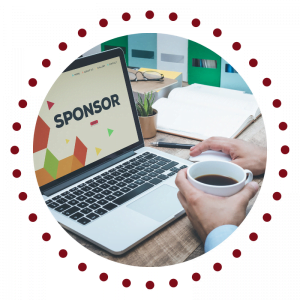
Want to be a Podcast Sponsor?
All sponsorships come with a featured spot on show notes pages.
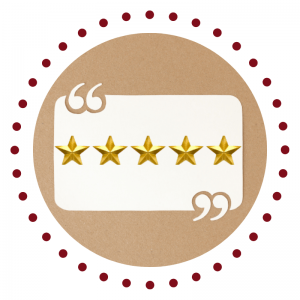
Like the Show? Please Leave a Review
If you like the show, it would mean the world to her if you left a quick review.
Your word is golden, so a HUGE thank you in advance!

#KeepInTouch
via our podcast alerts
Subscribe now to discover why thousands of monthly listeners who are passionate about doing their best work prioritize time each week to listen to the Blended Workforces @Work podcast.
#AboutSDL
#WhereToFindUs
MAILING
4480-H South Cobb Drive
PMB 219
Smyrna, GA 30080
PHYSICAL
2121 NewMarket Parkway
Ste. 108
Marietta, GA 30067
#ContactOptions
Customer Service Email:
service@shockinglydifferent.com
Call or Text:
770-384-1103
#Office Hours
MON-FRI
8:30 AM – 6:30 PM
Weekends By Appointment


